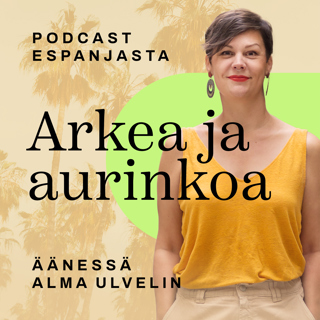
61. WSET Level 3 Success Starts Here: Your Complete Prep Checklist
Resources & Links www.wineeducate.com/newsletter-signup How to Contact Us joanne@wineeducate.com Show Notes: School is back in session, and today I'm tackling a question I get all the time from Level 2 students: "What should I be doing to prepare for Level 3?" Whether you're eager to keep the momentum going or just beginning to explore what's next, this episode is for you. Here's what we cover in Episode 61: 1. Get the Level 3 Book Your first step is to get the WSET Level 3 textbook in your hands. You don't have to register for the class right away—just ask your local provider if you can purchase the book or the full study pack (which includes the textbook, workbook, and SAT card). If you do buy it separately, remember to mention that when you enroll so you're not charged twice. 2. Listen to Episodes 27–39 These episodes were designed to prep you for Level 3. I cover what makes Level 3 more challenging, how to study smarter, and what to expect. They're packed with tips and context that I simply don't have time to cover in class. 3. Choose Your Format and Timing Think about how you learn best. – Do you want to take the class in person, or does online work better for your schedule? – Do you need a slower pace, or does a more condensed schedule keep you focused? Wine Educate offers a few different options, including a new condensed format that cuts class time in half by offering two classes per week. It's not a full one-week intensive, but it's faster than the 15-week version. Choose what works best for your learning style. 4. Consider Taking the Launchpad Prep Course This is our Level 3 prep course designed to help bridge the gap. It's available in two formats: – Live Launchpad for real-time support and motivation – Evergreen Launchpad for flexible, go-at-your-own-pace prep Both formats include all the materials and guidance you need to feel ready when class begins. 5. Explore the Level 3 Bootcamp Trip For those looking for a deeper, immersive experience, we offer a springtime Bootcamp trip at my family's vineyard in the South of France. This course focuses on the essay portion of the exam, which many students find challenging, and provides hands-on vineyard learning. If you're a visual, experiential learner, this option can be transformative. Need help figuring out what's right for you? Reach out! Email me at joanne@wineeducate.com or simply hit reply on the newsletter. I'm always happy to answer questions and help you build the path that works best for your study goals. Until next time—cheers, and good luck on your WSET journey.
24 Heinä 7min

60. Wine Tasting Series: - Lees Ageing in Wine: What It Is, Who Uses It, and Why It Matters
Resources & Links Sign up for the newsletter to get the full tasting exercise sheet and weekly updates: www.wineeducate.com/newsletter-signup How to Contact Us Email Joanne at: joanne@wineeducate.com Episode Summary In this episode, Joanne dives into the concept of lees aging—a winemaking technique that can add texture, flavor, and complexity to a wine. You'll learn what lees are, what autolysis means, and how lees contact shows up in both still and sparkling wines. Joanne also covers why some winemakers use lees aging and why others avoid it, depending on the wine's intended style. You'll walk away with a clear understanding of what to look for in the glass and how to taste the difference for yourself. In This Episode: What lees are and how they form during fermentation The process of yeast autolysis and what it does to wine Three key impacts lees aging has: added body, flavor, and stability Why winemakers choose to age wines on the lees Examples of wine styles that do and do not use lees aging A side-by-side tasting recommendation: Without lees contact: Sauvignon Blanc from Marlborough or Pinot Grigio With lees contact: Muscadet Sèvre et Maine "Sur Lie" from the Loire Valley Tasting Series Reminder This is tasting exercise number nine in the summer mini-series. You can download the full tasting sheet with prompts and guided questions from the newsletter at: www.wineeducate.com/newsletter-signup Next week's episode will be the final tasting in this 10-part series, and then we'll shift gears to cover more WSET Level 3 material. Thank you for listening to the Wine Educate Podcast. Until next time!
22 Heinä 12min

59. Corks, Screwcaps, and Surprises: How Wine Closures Affect What's in Your Glass
Resources & Links Join the Wine Educate Newsletter — Get the tasting series, study tips, and WSET updates each week www.wineeducate.com/newsletter-signup How to Contact Us Website: www.wineeducate.com Instagram: @wineeducate Email: joanne@wineeducate.com Episode Summary This week we're diving into a topic I've wanted to talk about for a while—wine closures. Whether you're studying for WSET Level 3 or just wondering why some wines pop and others twist, this episode breaks down the major closure types, their pros and cons, and what they mean for wine quality and storage. While this could easily become a deep dive (and I may still do that one day), today's episode is an overview to help you better understand how closures affect the wine in your glass and what to look out for as a consumer or student. What You'll Learn The difference between natural cork, technical corks, synthetic corks, screwcaps, Vinolok, and crown caps What TCA is, how it affects wine, and why it still impacts up to 2–3% of cork-closed wines The pros and cons of each closure, from oxygen ingress to perception and pricing Why synthetic corks aren't recommended for aging, and how fast they let in oxygen Why screwcaps are often a better choice for fresh, young wines—and how liner options now offer controlled oxygen exposure What to do if you're storing wine at home—and how your closure type matters Real-world advice on how closures show up in blind tastings, and how they might influence your assumptions A Quick Snapshot Natural cork is traditional and romantic, but still poses a risk of TCA (cork taint). Screwcaps offer a reliable, taint-free seal and are ideal for most young wines. Synthetic corks might look fun, but they allow a lot of oxygen in—and that's not great if the wine's been on the shelf for a while. Technical corks, like DIAM, use advanced cleaning processes to remove TCA, while Vinolok glass closures are beautiful but expensive. Crown caps are becoming more common in pet-nats and natural wines and are widely used during sparkling wine production. Final Thought Closures are more than packaging—they're a clue. They tell you something about the wine's intended shelf life, how it was made, and even how it should be stored. Understanding the differences helps you buy better, store smarter, and taste more confidently. And if you ever doubted the importance of closures, remember: even the most beautiful wine can be spoiled by the wrong seal. See you next time, Joanne
17 Heinä 12min

59. Corks, Screwcaps, and Surprises: How Wine Closures Affect What's in Your Glass
Resources & Links Join the Wine Educate Newsletter — Get the tasting series, study tips, and WSET updates each week www.wineeducate.com/newsletter-signup How to Contact Us Website: www.wineeducate.com Instagram: @wineeducate Email: joanne@wineeducate.com Episode Summary This week we're diving into a topic I've wanted to talk about for a while—wine closures. Whether you're studying for WSET Level 3 or just wondering why some wines pop and others twist, this episode breaks down the major closure types, their pros and cons, and what they mean for wine quality and storage. While this could easily become a deep dive (and I may still do that one day), today's episode is an overview to help you better understand how closures affect the wine in your glass and what to look out for as a consumer or student. What You'll Learn The difference between natural cork, technical corks, synthetic corks, screwcaps, Vinolok, and crown caps What TCA is, how it affects wine, and why it still impacts up to 2–3% of cork-closed wines The pros and cons of each closure, from oxygen ingress to perception and pricing Why synthetic corks aren't recommended for aging, and how fast they let in oxygen Why screwcaps are often a better choice for fresh, young wines—and how liner options now offer controlled oxygen exposure What to do if you're storing wine at home—and how your closure type matters Real-world advice on how closures show up in blind tastings, and how they might influence your assumptions A Quick Snapshot Natural cork is traditional and romantic, but still poses a risk of TCA (cork taint). Screwcaps offer a reliable, taint-free seal and are ideal for most young wines. Synthetic corks might look fun, but they allow a lot of oxygen in—and that's not great if the wine's been on the shelf for a while. Technical corks, like DIAM, use advanced cleaning processes to remove TCA, while Vinolok glass closures are beautiful but expensive. Crown caps are becoming more common in pet-nats and natural wines and are widely used during sparkling wine production. Final Thought Closures are more than packaging—they're a clue. They tell you something about the wine's intended shelf life, how it was made, and even how it should be stored. Understanding the differences helps you buy better, store smarter, and taste more confidently. And if you ever doubted the importance of closures, remember: even the most beautiful wine can be spoiled by the wrong seal. See you next time, Joanne
17 Heinä 12min

58. Wine Tasting Series: - Understanding SAT Clusters - #8 - Herbal
Resources & Links Join the Wine Educate Newsletter — Get tasting sheets, class updates, and study tips straight to your inbox. www.wineeducate.com/newsletter-signup How to Contact Us Website: www.wineeducate.com Instagram: @wineeducate Email: joanne@wineeducate.com Episode Summary In this week's tasting episode, we're sticking with the green theme—but taking a turn from herbaceous to herbal. They're not the same (and your WSET Level 3 SAT card agrees). Joanne breaks down what qualifies as herbal—think mint, eucalyptus, dill, lavender—and offers hands-on tips for recognizing these aromas and flavors in your daily life, from peppermint tea to dill-flavored potato chips. You'll also hear about her recent wine road trip through Piedmont, Val d'Aosta, and back through the South of France, where the changing landscape echoed these herbal notes in both the wines and local cheeses. What You'll Learn The difference between herbaceous and herbal (and why it matters on the SAT) How to identify mint, eucalyptus, fennel, dill, and lavender using items you likely already have Why dried herbs are tricky—but worth practicing Wine examples that often show herbal notes, like Australian Shiraz, Rioja, and Southern Rhône reds A tasting group exercise you can do this week to sharpen your herbal identification skills Tasting Challenge Gather some common dried herbs—oregano, thyme, basil, rosemary—and do a blind smell test with your tasting group. Can you pick out each one? Then try a Rioja or an Aussie Shiraz and see if you can find dill or eucalyptus on the nose. This kind of sensory training builds the confidence you need for Level 3 tasting exams. Final Thought You don't need access to every plant on the SAT card to be a great taster. Use what's around you, get curious, and don't be afraid to name something even if it's not "on the list." What matters is building your own sensory memory.
15 Heinä 11min

57. Decanting Wine: Tips, Myths, and Best Practices
Resources & Links • Join the newsletter and get weekly tasting sheets, updates, and bonus content: www.wineeducate.com/newsletter-signup • Ask a question via the SpeakPipe link in the newsletter How to Contact Us • Website: www.wineeducate.com • Instagram: @wineeducate • Send a question: Look for the SpeakPipe link in the newsletter Episode Summary In this Thursday Q&A episode, Joanne answers a question from Jonathan: "When should I use a decanter?" It's a great question—and one that many people are afraid to ask. Joanne walks through the main reasons to decant wine and when it might actually make things worse. From young reds that need to open up, to natural wines with reduction, to bottles with sediment, she covers the practical (and avoidable) reasons for decanting. And yes—she even shares a story about vintage Champagne in a decanter. What You'll Learn in This Episode • Why decanting helps wines "open up" • When sediment makes decanting necessary • How just opening the bottle early can often be enough • Why most wines don't need to be decanted • Which wines are good candidates (and which aren't) • How older wines can be fragile and fall apart after decanting • Why you don't need a fancy decanter to try this at home • The controversial truth: Yes, it's okay to decant vintage Champagne! Wines Mentioned • Young, tannic reds: Cabernet Sauvignon, Syrah/Shiraz, Barolo • Natural wines (with reduction) • White Burgundy (and other age-worthy whites) • Vintage Champagne (when you're feeling bold) Key Takeaway There's no one-size-fits-all answer. Wine is about enjoyment, so if you're curious—experiment! Use what you have, taste as you go, and don't worry about "rules." Even a science beaker can be a great decanter.
9 Heinä 10min

56. Wine Tasting Series: - Mini Wine Tastings You Can Do at Home - #7 - Herbacious
Resources & Links Join the newsletter and download the full tasting prompt sheet: www.wineeducate.com/newsletter-signup How to Contact Us Website: www.wineeducate.com Instagram: @wineeducate Submit a question for the podcast: Use the SpeakPipe link in the newsletter Episode Summary Welcome to Episode 56 of the Wine Educate Podcast. It's Tuesday, which means we're continuing our Summer Tasting Series—short, practical exercises you can do at home or with your tasting group to build your sensory memory and confidence with aromas and flavors. This week's focus is on herbaceous aromas, a key cluster on the WSET SAT. Joanne walks us through how to identify and experience the following aromas: green bell pepper, grass, asparagus, tomato leaf, and blackcurrant leaf. Not to be confused with herbal notes, these green aromas are especially common in Sauvignon Blanc and less-ripe Cabernet Sauvignon. You'll get tips on where to find these ingredients—whether it's the farmer's market, your own backyard, or a trip to the store—and why it matters to train your brain to recognize them. Joanne also shares how to link these notes to specific wines, with suggestions to try New Zealand Sauvignon Blanc and Bordeaux-style Cabernet blends for real-world examples. Whether you're studying for WSET or just want to be more confident in your tasting, this episode will help you file those aromas into your internal "flavor cabinet" with clarity and a little bit of fun. Tune in, sniff around, and start building your aroma recognition skills one wine at a time. Next Steps Download the companion tasting sheet from the newsletter. Not on the list? Visit www.wineeducate.com/newsletter-signup
8 Heinä 7min

55. How to Share Your Wine Knowledge Without Sounding Like a Jerk
Resources & Links Sign up for the newsletter: www.wineeducate.com/newsletter-signup Ask your question for the podcast: SpeakPipe link in the newsletter How to Contact Us Instagram: @wineeducate Email: joanne@wineeducate.com Host: Joanne Close Episode Summary You've just come back from a week of learning, wine tasting, and exploring the vineyards of France—you're full of enthusiasm and new knowledge. But how do you talk about wine with friends and family without coming across as condescending? In this episode, Joanne tackles a thoughtful listener question and shares real advice on how to talk about wine in a way that's approachable, fun, and respectful—without dulling your passion or making anyone feel uncomfortable. In This Episode: How to avoid "winesplaining" and connect instead What to do when someone is wrong without embarrassing them The difference between being helpful and being the wine fact police Connecting wine to other interests: history, gardening, art, food Remembering that wine is about enjoyment—ice cubes and all A few stories from the vineyard and lessons from real life Why a little kindness goes further than a textbook correction Key Takeaway: Share what you love about wine in a way that invites curiosity, not correction. Be the person who brings others in, not the one who pushes them away.
3 Heinä 8min





















